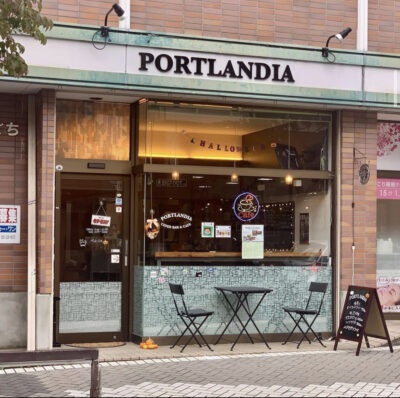Ask Away: 5 Questions for a Future Music Industry Professional Learning Japanese & ASL

We’re asking students, recent grads, teachers, and counselors five questions on how languages play a role in shaping personal and professional success…
Meet Joshua—a California student earning his university degree abroad at Yamanashi Gakuin University International College of Liberal Arts (iCLA).
1. Could you share with us a little about your earliest experiences with languages? What sparked your interest in language learning and how/when did you begin?
I first started learning a second language in my sophomore year of high school when I joined the American Sign Language (ASL) class. Our teacher was a Deaf actress, and the very first day of class she told us that starting the next day we would not be allowed to speak English during the course, only American Sign Language! Of course, we were all mortified since we hadn't even begun to learn the basics of ASL, but she taught the most important tool in any language—how to ask questions.
From that point on, we were thrust head-first into total language immersion where we had no choice but to use ASL for everything. Although it was daunting at first, I found myself looking forward to class every day and I ended up progressing all the way until ASL 4 Honors and joining the national American Sign Language Honors Society. Language immersion is not only the best way to learn, but is also challenging, rewarding, and fun!
Now that I am studying Japanese at a Japanese university, I am always seeking opportunities to immerse myself in Japanese language environments and seek opportunities where I can challenge myself and my language skills.
2. You’re currently attending the International College of Liberal Arts (iCLA) in Japan: We’d love to hear more about your decision to complete studies abroad!
I started studying Japanese when I was a freshman at California Lutheran University (CLU), but unfortunately there were no Japanese language classes available so I had to study by myself. I enjoyed learning it, but I was making very little progress alone and I wanted to experience language immersion like I did with ASL in high school. Aside from that, I was beginning to feel that I was wasting my college years by going to school in the same town I had grown up in, and that I was never going to get a better chance to see more of the world than my early twenties.
On a whim, I began looking for colleges in Japan that offered music and arts programs (I was studying music production at California Lutheran University), and I found iCLA. I decided to take a leap of faith and transfer from CLU to finish my degree at iCLA. It was definitely scary, moving by myself to Japan (I hadn’t even been out of America before coming here), but the experience has been absolutely amazing so far, and I am so glad I decided to make this journey.
3. Could you share with us a favorite moving, memorable, or even funny anecdote about an interaction/conversation or moment that your language skills made possible?
Making a mistake in a language you are learning is embarrassing, but having the courage to step out of your comfort zone and try to communicate despite the challenges always provides critical learning experiences.

During a very important presentation in my American Sign Language class, my intention was to discuss my how my goal after high school was to go to college and get my degree, but I accidentally signed that I want to go to college in order to get a hot dog. I still cringe thinking about that now, but I will never forget the sign for “degree” or “hot dog” after that!
Recently at my part-time job at a café in Japan, I confidently told my boss that my friend (who was sitting at the counter) loved to eat “tamagonegi.” After a minute of confusion, my boss burst into laughter, realizing that I meant to say “tamanegi” (onion) but somehow mixed that up with the word “tamago” (egg). I definitely won’t make that mistake again!
Miscommunication is always a fear that language learners have, but there is no better way to learn than making mistakes, even when it’s embarrassing!
4. Any advice or tips for fellow learners considering enrolling in a language?
Always try to immerse yourself as much as possible in the language you want to learn. One of the biggest barriers for language learners, even those who have been learning for years, is constantly translating in your head. When you start learning a language, you are reliant on your native language in order to study vocabulary and grammar, but it’s important to get away from this as soon as possible. If you are always translating in your head, you will always be slower with your speaking and reading.
It’s difficult to describe how to do this, but you have to have a study environment in which you can be constantly thinking in and using the target language. It may be daunting, but you will learn a lot faster and feel much more satisfied with your language skills in the long run!
5. Complete this thought: “Learning another language means…”
Learning another language means learning another culture. Language is so much more than just vocabulary and grammar.

The biggest surprise for me when I was learning Japanese were the various levels of politeness. In English, we speak slightly differently to bosses or teachers, but in Japanese the manner of speaking changes dramatically. Understanding this means understanding Japanese culture and knowing when and when not to use certain levels of politeness.
Beyond cultural differences within the aspects of the language itself, language even affects the way cultures make and perceive art. During my studies at iCLA, I studied how American musicians and Japanese musicians approach rhythm differently based on the differences in cadence between English and Japanese.
All of this is to say that language is not a purely academic study of syntax and grammar. It involves studying how different cultures think, act, and interact. Let your perspective change and study language creatively!
Check out our Connect with Japanese or ASL pages to explore language scholarships, university programs, testimonials, and more! And, as always, visit @LangConnectsFdn on social media to share your story with us.
